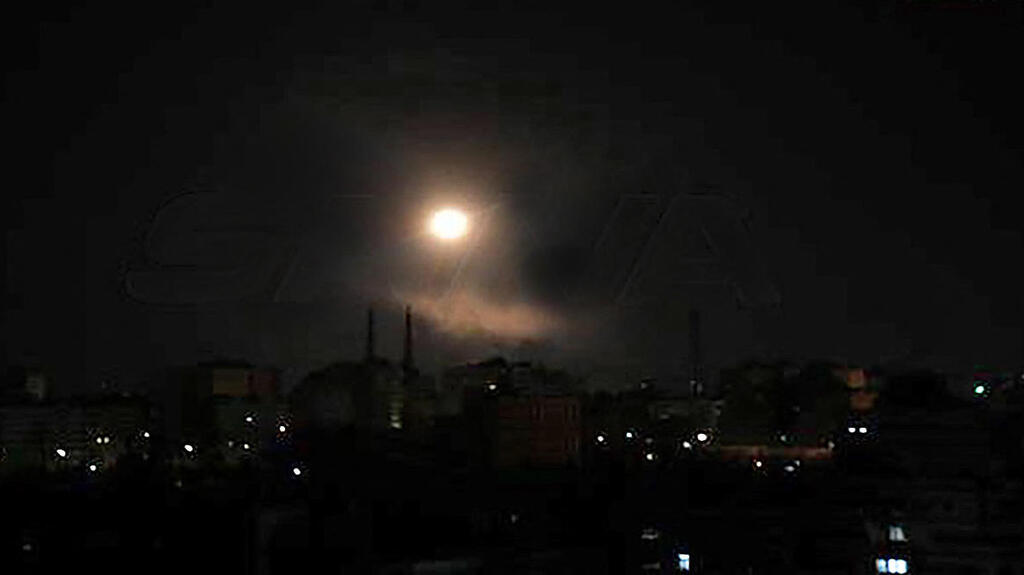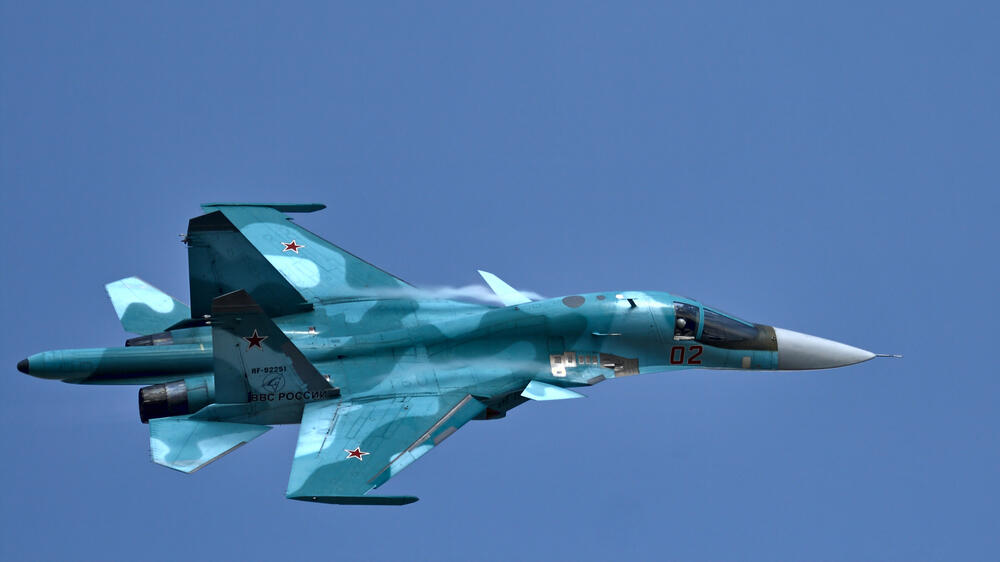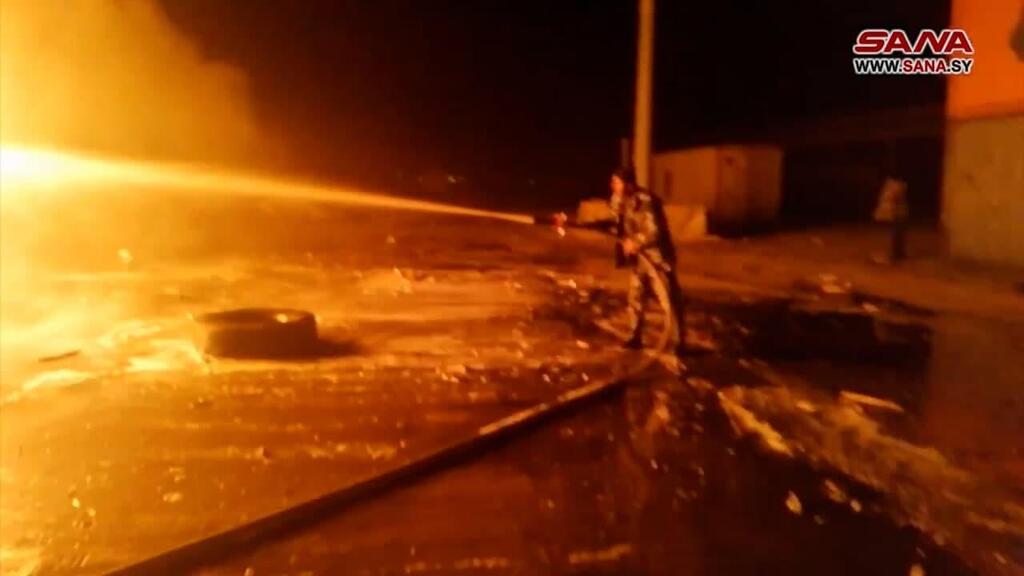On Monday, two major Iran-related security incidents took place in a span of three hours.
First was an attack on the outskirts of Damascus attributed to Israel targeting warehouses belonging to the Iranian-backed Hezbollah group.
3 View gallery


Syrian air defenses activated against an alleged Israeli strike near Damascus over the summer
(Photo: AFP)
The other was a ballistic missile fired at Abu Dhabi by the Iranian-backed Houthi rebels in Yemen during President Issac Herzog's visit.
Although the missile was launched by the Houthi fighters, it was clearly an Iranian assault on the Gulf nation and could serve to further strengthen Israeli–Emirati security cooperation.
The predawn strike on Damascus came just over a week after a joint flyby of the Russian and Syrian air forces along Israel's Golan Heights border, which some believe signals the Kremlin's dissatisfaction with increasing Israeli attacks against its north-eastern neighbor.
Advanced Russian fighter jets, including Sukhoi Su-34s and 35s and A-50s, as well Syrian MiG-23s and 29s, took part in a drill that Russian defense officials described as the first in what was to become a routine occurrence.
The higher-ups in the Israeli defense establishment were quick to contact their Russian counterparts, voicing their concerns a shift in Moscow's policy in the region would hamper Israel's efforts to prevent Iran's entrenchment along its northern border.
Jerusalem is concerned that Iran would station its proxies along its border with Syria, becoming an extension of the Hezbollah threat in Lebanon.
Making the most of a lull in inclement weather, Israel chose to inform Moscow of its intentions only shortly before striking as required in the cooperation agreements between the countries.
The strike itself could be considered a message to Moscow on Israel's part that the campaign against Iran on Syrian soil will carry on.
Further stoking Jerusalem's concerns, Hezbollah mouthpiece Al Akhbar daily reported last Wednesday that Moscow will shift its policy in Syria and it will be deploying military advisors to patrol the Syrian port of Latakia, another target of repeated Israeli strikes in recent months.
The paper quoted sources as saying that the Syrian regime and its allies, chief among them Iran, expressed to Moscow their displeasure with repeated Israeli aggressions and warned that they would soon be forced to react unless the Russians themselves intervened.
For Tehran, Sunday's strike is a sign that despite Washington's weakness against them — even after attacking U.S. targets in Syria and Iraq — Israel is different. It will not fold, not even in the face of Russian pressures.
We will now have to wait for an official response from the Russians or any other action on the ground. As far as Israel is concerned, it has no intention to make any policy changes.



